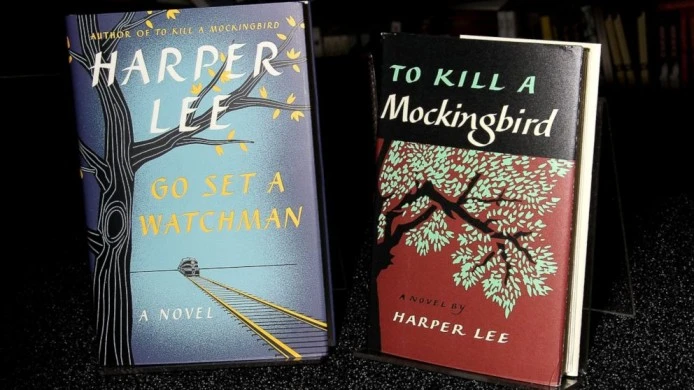Rigged, by David Shimer: An Excerpt
Introduction
DEMOCRACY UNDER SIEGE
President Barack Obama faced a momentous choice. By the summer of 2016, he knew that Russia was interfering in America’s upcoming election. He also knew that Vladimir Putin, the Russian president, was directing this operation. Obama now had to decide whether to retaliate against Putin before or after Election Day.
That summer, Celeste Wallander, the top Russia expert inside the White House, submitted to her superiors a classified memorandum outlining ways to punish Putin immediately, in order to deter further interference in the election. “We wanted to do light deniable countermeasures early, in July,” said Victoria Nuland, an assistant secretary of state who collaborated closely with Wallander. “All of my Soviet and Russia training told me we had to deter with a strong set of measures up front and have them calculate the costs of continuing to attack us, particularly with a player like Putin.” Nuland, Wallander, and other officials proposed a range of options: sanctioning Russia, leaking damaging information about Putin, even suffocating Russia’s economy. James R. Clapper, then the director of national intelligence, recalled considering “all kinds of nasty things we could have done to the Russians,” such as “cutting them off from the international financial system.”
But, Clapper continued, the risks were too high: “What would the retaliation have been?”
[ Return to the review of “Rigged.” ]
The answer was unknown. Russian intelligence had already stolen and released emails damaging to the Democratic Party, in an effort to influence voters’ minds. But Russian hackers had also breached electoral systems, which Washington could not systematically defend. States and localities, not the federal government, purchase and manage America’s electoral infrastructure. In some states, voter registration databases were unencrypted and insecure. “[Russia] could have done things as far as voter registration rolls; they could have done things as far as tallies,” said John Brennan, then the director of the Central Intelligence Agency (CIA). Jeh Johnson, the secretary of homeland security, worried that Russia “could screw around with voter registration lists to a sufficient degree” to alter the outcome of the election, by making Democrats in swing states like Florida unable to cast their ballots on Election Day.
Retaliating against Putin could provoke him into disrupting the voting process itself. With Hillary Clinton favored to win the presidency, and with Donald Trump alleging that the election would be rigged, Obama delayed punishing Russia. Restraint seemed prudent. Instead, at a summit in China in early September, he warned Putin, “You fuck with us and we’ll take you down,” as one of his senior advisers put it. Of this encounter, Lisa Monaco, Obama’s homeland security adviser, said, “We delivered the message to Putin and others in response to what we were seeing in the state systems. That was our focus.”
By October, Russia was still targeting America’s electoral infrastructure. Obama’s team considered efforts to manipulate these systems “a redline of sorts,” said Avril Haines, the deputy national security adviser, and formulated “a series of very significant responses in the event that the Russians engaged in vote tampering.” On Election Day, parts of the federal government secretly braced for such an assault. “We did, in fact, have an entire crisis team set up in the White House,” said Michael Daniel, Obama’s cybersecurity coordinator. “There were teams at all of the respective agencies,” he continued, monitoring for a Russian cyberattack.
The worst-case scenario did not arrive: Voting unfolded without interruption. But Russia’s operation had by no means failed. Hacked emails had already dominated the news cycle for months, and Russian propaganda had reached tens of millions of Americans on social media. Obama had prioritized protecting the ballot box from direct manipulation, but at a cost: Russia had brazenly manipulated voters’ minds. Victoria Nuland lamented the White House’s redline mentality. “That is what they were focused on,” she said, regarding the threat of vote alterations. “They were not focused at all on what we knew had been very effective elsewhere: the influence campaign, changing public opinion.”
Obama, near the end of his presidency, retaliated against Russia with economic and diplomatic countermeasures. Too little, too late, many of his advisers now say. “We did not do enough, at an early enough point in our tenure,” said Jon Finer, then the State Department chief of staff. “I would have done more sanctions sooner.” The then deputy secretary of state Tony Blinken said that, as he has learned more about Russia’s operation, he has asked himself: “Did we do enough in terms of punishment? And I think clearly, we didn’t.” Even James Clapper said it was a mistake to impose costs on Russia only in December: “I would have preferred that been done before the election.” (President Obama, through a representative, declined to be interviewed for this book.)
By waiting to retaliate, Obama effectively permitted a degree of foreign interference in an American election to avoid making an already-bad situation worse. A previous generation of U.S. policy makers—who themselves interfered in many elections overseas—would have found such a scenario unimaginable: the United States, the world’s most powerful democracy, unable to secure its own elections. But Obama was operating in a new world, a digital one, that had left America vulnerable.
—
The story of Russia’s attack on the 2016 election is, in part, a story of difficult choices, made inside the Situation Room based on imperfect information and incomplete intelligence. In this environment, Obama had settled for a policy of managed interference, working to contain but not stop Russia’s operation. Rather than impose costs on Putin in real time, he had focused on preventing one form of electoral interference—changing actual votes—while neglecting another: changing minds.
In these critical months, Obama had tried but failed to preserve America’s sovereignty. The theorist Hans Morgenthau described sovereignty as the “impenetrability” of the nation; others have argued that sovereignty means being “free from all foreign authority” and is “violated when external actors influence or determine domestic authority structures.” Covert electoral interference targets a democracy’s process of succession and therefore targets the electoral sovereignty of that democracy. When such activity is discovered, the benefiting candidate is plagued with electoral insecurity, or a fear that citizens will consider him illegitimate and indebted to a foreign actor.
Can a democracy maintain its electoral sovereignty in the twenty-first century? Obama’s intelligence chiefs are skeptical. “It would have been impossible, given the nature of this world, for the Obama administration to do something that would have led to a complete cessation of Russian efforts,” John Brennan insisted. “It’s not the way the world works. It’s not the way the Russians work.” Other officials disagree. “Bullshit. That’s just bullshit,” said one of Obama’s senior advisers, who requested anonymity to speak freely, when presented with Brennan’s argument. “There were things we could have done to protect U.S. national security that [Obama] chose not to do.”
—
Since 2016, Russia’s operation has received ceaseless attention, but much of it remains misunderstood. Basic questions have been left unanswered: What is covert electoral interference? For how long have states executed such operations? When did America’s elections become so exposed? Just how exposed is America? And, in the digital age, what can democracies do to defend themselves?
This book seeks to answer these questions by analyzing not just interference in America’s 2016 election but also what came before. Politicians, policy makers, and commentators today often act as though Putin were the first leader to manipulate a foreign election. In this vacuum, covert electoral interference is Russian interference in the 2016 election, in favor of Donald Trump. This ignorance is dangerous. To understand what Russia achieved in 2016, and to prepare for what’s ahead, this book looks beyond the daily news cycle. After Trump won, high-profile investigations into his campaign distracted from the issue that spawned them: a massive foreign operation to undermine a presidential election.
Back in the summer of 2016, Avril Haines and other senior Obama administration officials sought a more complete picture. They requested a report on Moscow’s previous attempts to covertly influence U.S. elections. The briefing they then received, presumably from the U.S. intelligence community, remains classified.
[ Return to the review of “Rigged.” ]
This book can be understood as the unclassified and expanded version. Traveling across six countries, I spoke with foreign heads of state and intelligence chiefs, eight former CIA directors and many more CIA officers, twenty-six former advisers to President Obama and eleven former advisers to President Trump, and a host of leading journalists and technology experts. I also learned from the work of historians and other scholars, and I analyzed hundreds of pages of KGB and Stasi archives, many thousands of pages of declassified CIA files, and as many government reports, official testimonies, and meeting transcripts as I could get my hands on.
My aims are twofold: to examine a century’s worth of covert electoral interference, and to analyze Putin’s 2016 operation as the evolution of a practice rather than its creation. For democracies today, the stakes of grappling with this hidden and revelatory history could hardly be higher. The twin processes of globalization and digital connectivity have empowered hostile actors to manipulate democracies everywhere. The evolving threat of covert electoral interference is a symptom of a still more momentous challenge: the exposure of democracies in the age of the internet. “[Russia] is taking advantage of our free and open societies in using these capabilities,” said H. R. McMaster, Trump’s former national security adviser. “It’s important for us to develop better means of defending ourselves against this kind of sustained, really sustained campaign of political subversion.” If democracies do not meet this challenge, foreign actors—for now Russia, but soon others—will erode them from within.
—
Some definitions are needed to keep my arguments precise. The words “covert,” “interference,” and “electoral” determine the scope of this book. An operation is covert only if the hand of the interfering actor is meant to be hidden; a public endorsement by a foreign leader, for example, does not qualify, but stolen emails released by a third party do. An operation amounts to interference only if the foreign actor deploys active measures, defined as “activities intended to influence a person or government that are carried out in coordination with, or at the behest of, political leaders,” including through the “establishment or funding of a front group . . . covert broadcasting . . . media manipulation . . . disinformation and forgeries . . . funding agents of influence . . . [and] assassinations.” And an operation qualifies as electoral only if it targets a vote that determines who becomes another country’s leader. Covert electoral interference can thus be defined as a concealed foreign effort to influence a democratic vote of succession. Staged coups d’état do not involve votes of succession and therefore fall outside the bounds of this book.
“Democracy is a procedure to change rulers,” writes historian Timothy Snyder. “Democracies die when people cease to believe that voting matters. The question is not whether elections are held, but whether they are free and fair.” Many factors can undermine an election, from voter suppression to voter intimidation. My focus is on foreign disruptions to electoral processes and on the power those operations have to corrupt democratic governments.
This book advances four core arguments. First, the story of covert electoral interference is, above all, a story of Washington and Moscow. This story has spanned the past century, beginning with the end of World War I, when old empires collapsed and vulnerable democracies emerged. The Soviet Union, but not the United States, seized the opportunity to manipulate elections overseas. A break occurred between 1941 and 1945, as a result of a U.S.-Soviet alliance during another world war. The next phase of this history arose thereafter as Moscow rigged elections in Eastern Europe, and the world witnessed an explosion of covert electoral interference. Between 1948 and 1991, the CIA and the KGB, competing in a global Cold War, targeted elections aggressively and frequently. After the Soviet Union collapsed, a divergence took place. The United States moved away from covert electoral interference as a policy option, while Putin’s Russia, empowered by the internet, doubled down on the practice, marking its second global explosion. Today, as in 1919, Moscow is covertly interfering in elections abroad while Washington sits on the sidelines—only now Russia possesses a digital arsenal to which the United States is profoundly vulnerable.
Second, American operations to interfere in elections are comparable but not identical to Russian efforts to do the same. Every instance of covert electoral interference can be understood across two planes. One has to do with individual change: whether the intention of an operation is to promote a friendly candidate, defeat an unfriendly candidate, or exhibits no preference. The other has to do with systemic change: whether the intention of an operation is to strengthen, weaken, or not at all impact the internal functions of a democracy. Washington and Moscow are equivalent across the first plane. Both have used covert electoral interference to advantage specific candidates. But Moscow and Washington are not equivalent across the second plane. Putin and his predecessors have long believed they could use covert electoral interference to weaken foreign democracies, while American presidents, sometimes wrongly, have long believed they could use covert electoral interference to strengthen foreign democracies.
Some operations detailed in this book exclusively involved individual change, as when the KGB supported major-party candidates in Cold War–era U.S. elections, not to weaken American democracy, but to promote friendlier American governments. Other operations exclusively involved systemic change, as when Russia covertly spread propaganda in favor of the Leave campaign in the United Kingdom, in order to weaken British democracy. And certain operations involved both systemic and individual change, as when the CIA, in 2000, supported the opposition to Slobodan Milošević, a murderous tyrant, not just to establish a more conciliatory Serbian government, but also to strengthen Serbian democracy. “The guy was a war criminal,” President Bill Clinton told me, in explaining why he authorized the CIA to interfere in this election. “I didn’t consider Milošević to be a democracy candidate; I thought he was trying to get rid of democracy.” In this sense, covert electoral interference is a more tense policy option for Washington—which has purported to manipulate democracies in order to solidify those democracies— than for Moscow, which has manipulated democracies in order to tear them apart.
Third, Russian interference in the 2016 election marked a direct continuation of old ideas. Covert electoral interference has always taken two forms: changing ballots and changing minds. The former can range from falsifying vote counts and buying votes to blackmailing voters and hacking into voting systems; the latter, from influencing foreign media and disseminating propaganda to leaking salacious information and funding political campaigns. The purpose of Russia’s 2016 operation is not new, either: assisting a friendly candidate, undermining a threatening candidate, and sowing discord within a foreign democracy. Voters, once aware of a covert campaign to influence them, have always struggled to accept that they might have been played. And across history, as in 2016, the mere discovery of such an operation can divide a nation. From Britain’s 1924 election, to Chile’s 1964 election, to America’s 2016 election, this book recognizes and learns from these patterns.
Fourth, the digital age has irrevocably enhanced the weapon of covert electoral interference. The internet has enabled hostile actors to penetrate the ballot box in new and more accessible ways, as Barack Obama learned in 2016. It has also empowered interfering actors to target voters based on their personal profiles. A new battlefield has emerged in social media, where foreigners can suppress, turn out, and frighten voters while avoiding real-time detection and sidelining traditional news outlets. Today, the press has less influence over what information—and, importantly, disinformation—reaches citizens. “We’re no longer the filter we once were,” said Peter Baker, the chief White House correspondent for The New York Times. Platforms like Facebook and Twitter don’t just enhance modern interference operations; they enable them. “The truth is Facebook did fuck up [in 2016],” said Alex Stamos, then the company’s chief security officer, “but we fucked up in the context of a lot of [other] people making mistakes.”
Newer democracies were once more vulnerable to covert electoral interference than their more established counterparts. The internet has leveled the playing field. All democracies are exposed. In this anarchic environment, Putin foments discord as an end in itself. Valery Gerasimov, a top Russian general, has commented that “the information space opens wide asymmetrical possibilities for reducing the fighting potential of the enemy.” Gerasimov and his colleagues have weaponized the digital sphere to strike at the heart of democracies: their elections.
The democratic model is not guaranteed to exist. It is a human creation maintained by human actors. Today, Moscow is working to corrupt democracies by assisting illiberal and divisive candidates of any political leaning. This campaign is unfolding not by land, sea, or air but across the internet. The first part of this book, spanning chapters 1 through 8, tracks the origins and evolution of covert electoral interference, from Vladimir Lenin’s creations, to the battles of the Cold War, to Putin’s modern strategy. The second part, spanning chapters 9 through 13, examines Russian interference in the 2016 election, illuminating President Obama’s struggle to defend America’s electoral sovereignty, as well as President Trump’s refusal to recognize this threat.
Central to this book is an idea: that the lessons of the past can and must be used to protect democracies in the present.
[ Return to the review of “Rigged.” ]




